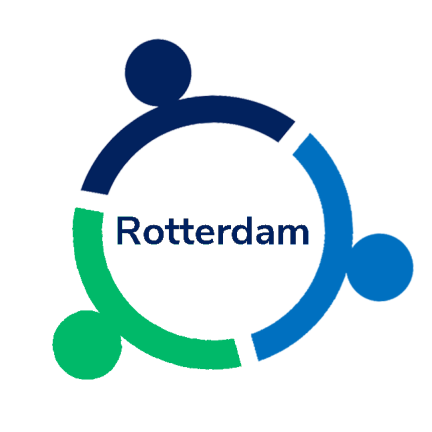Introduction to Git(Hub)
Our first online ReproducibiliTea Rotterdam was a great success! Thirty people joined our Zoom meeting to discuss with Anne Scheel her preprint comparing the standard psychology literature with Registered Reports. The presentation was awesome, the questions insightful, and the atmosphere light and informal. Thanks to everyone involved!
Given the strong interest and current relevance of open science as a set of tools to quickly disseminate knowledge, the OSCR will host an online webinar entitled Introduction to Git(Hub). Below the announcement:
WHAT
Introduction to Git(Hub).
WHEN
April 29th 2020 h. 10:00 CEST, duration 90’ - 120’1.
INSTRUCTOR
Dr. Ana Martinovici, Assistant Professor of Marketing at the Rotterdam School of Management
TARGET AUDIENCE
Anyone who uses data and/or code in their research but does not yet use a version control system.
COURSE SUMMARY
Reproducibility, replicability, good research practices, open science are receiving more and more attention. But what exactly do we need to do in order to ensure reproducibility of our results? To clarify, a study is reproducible if you can take the original data and the computer code used to analyze the data and reproduce all of the numerical findings from the study. This may initially sound like a trivial task but experience has shown that it is not always easy to achieve this seemingly minimal standard. The American Statistical Association put together principles and recommendation for supporting reproducible research. One of them specifies that “Reproducibility is enhanced by following best current practices, including (…) use of version control for all (collaborative or individual) code development”.
This webinar will focus on how to set up and use one the most popular version control systems: Git. There are many ways of using Git on your computer, but in this session we will provide examples of how to use it via RStudio, using only point & click menus (no code).
DESIRED OUTCOME
By the end of the webinar, you will be able to:
- create repositories on GitHub;
- clone repositories on your personal computer;
- make changes to files in repositories;
- commit & push the changes to repositories;
- collaborate with others on GitHub (both co-authors and other researchers you do not know).
PROGRAM
- In the first 40 minutes, Dr. Martinovici will provide examples of what you can use GitHub for, showing that the benefits of using version control outweigh the initial learning costs;
- in the remaining time we will set up Git, GitHub, and RStudio to work in synergy. We will go through examples together, so that attendees will have the chance to practice. To reap the full benefits of the hands-on practice session, make sure you go through the preparation steps before the meeting.
PREPARATION
- Install Git. You will find it in the EUR Software Center or the official website;
- install R & RStudio. You will find them in the EUR Software Center or the official websites (R, RStudio);
- create a GitHub account, which will allow you to have unlimited public repositories. If you prefer to keep your work private, you can apply for an academic account.
REGISTRATION
An invitation has been sent to researchers in the OSCR ReproducibiliTea mailing list. This email includes the Zoom link, meeting ID, and password. If you are not part of the ReproducibiliTea mailing list but would like to join, please contact Antonio.
MEETING RULES
- wear headphones;
- mute your microphone;
- video is optional, useful in case of troubleshooting;
- pay attention to the moderator (which will be Antonio);
- if you have questions:
- click on the Raise Hand button and the moderator will unmute you, or;
- write down your question in the chat and the moderator will read it;
- avoid talking over each other and make sure that everyone can have their opportunity to speak;
- arrive 5 minutes before the beginning of the call, to familiarize with the online environment.
ADDITIONAL NOTES
- In this webinar, we will be using RStudio only as an easy way to commit and push changes to the GitHub repository. These operations can be done outside of RStudio, for example in Matlab, SPSS, or other software;
- if you want to learn how to use Git but using RStudio is the only reason why you will not join this webinar, please notify Antonio. We are considering having a similar webinar where we use a Git GUI (e.g., GitHub Desktop or GitKraken) instead of RStudio;
- this webinar is organized by the Open Science Community Rotterdam. Join the community to propose topics for courses and journal club and interact with like-minded people. If interested, send an email to Antonio
Hope to see many of you!
Take care,
Ana Martinovici and Antonio Schettino
Depending on troubleshooting of possible technical difficulties experienced by the attendees.↩︎

